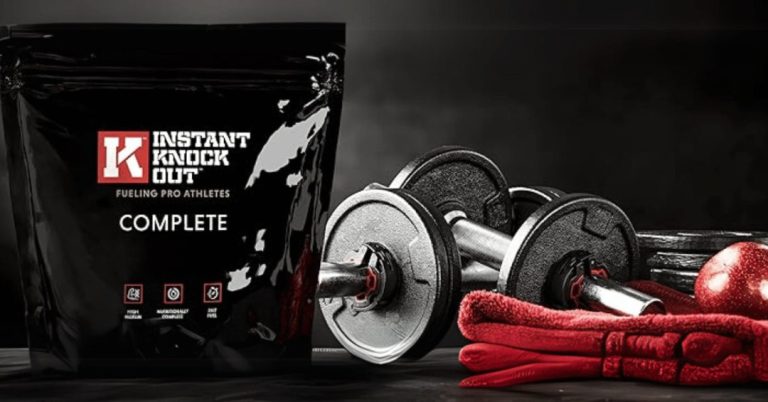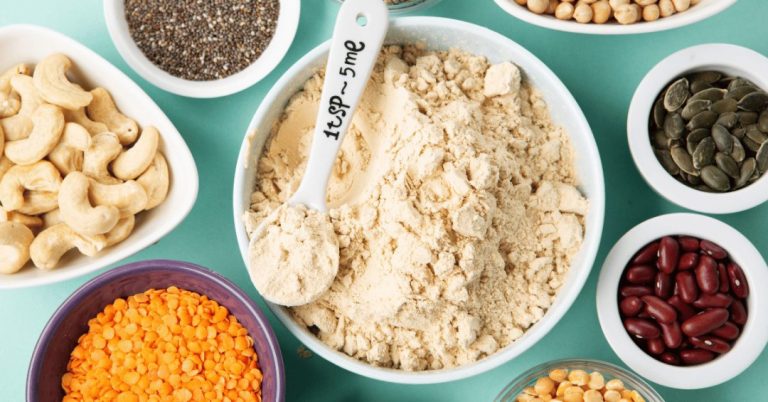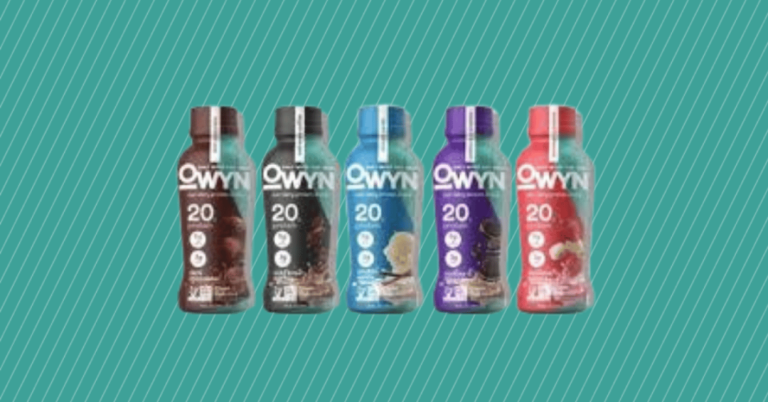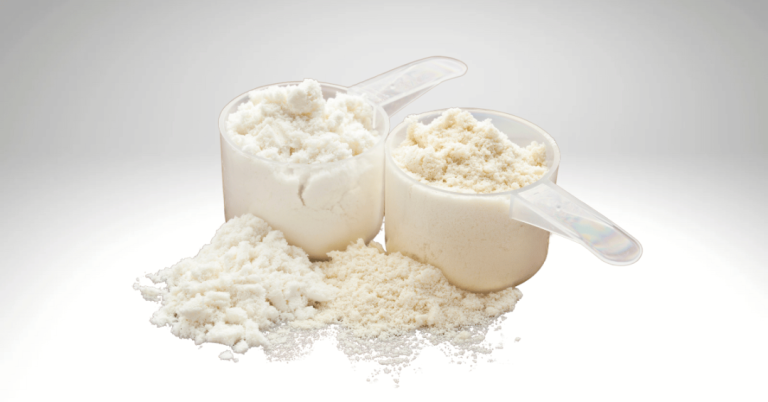Protein Shakes and Whey Protein Powder Is It Good For You?
Some links on this page are affiliate links (including Amazon Associate links) which means that, if you choose to make a purchase, we may earn a small commission at no extra cost to you. We greatly appreciate your support!
Protein powder has become a staple in fitness and nutrition, but confusion remains about its true health impact. As a registered dietitian with over a decade of nutrition research experience, I’m here to cut through the hype and provide evidence-based insights into whether protein powder is genuinely beneficial for your health and fitness journey.
What Is Protein Powder and How Does It Work?
Different Types of Protein Powder
There are several types of protein powders to choose from, each with its own benefits:
- Whey Protein: Whey is one of the most popular protein powders, derived from milk during the cheese-making process. It’s quickly absorbed and rich in essential amino acids, making it great for post-workout recovery.
- Casein Protein: Also from milk, casein digests slower than whey, providing a steady stream of amino acids over several hours. This makes it an excellent option before bed to support muscle repair while you sleep.
- Plant-Based Proteins: Options like pea, rice, hemp, and soy protein cater to those who prefer a dairy-free or vegan choice. Many plant-based protein powders combine multiple sources to ensure a complete amino acid profile.
Each type of protein serves different needs, whether you’re looking for quick muscle recovery, sustained satiety, or a dairy-free option.
How Protein Supplements Are Manufactured
Protein powders are created through different processes based on their source:
- Whey and Casein: Extracted from milk, whey and casein are separated from fats and carbohydrates, then dried into a powder.
- Plant-Based Proteins: Made by extracting protein from plants like peas, soy, or rice, often through water or enzyme-based processing.
- Protein Isolates & Concentrates: Some powders go through extra filtration to create “isolates,” which have more protein per serving and fewer carbs and fats than “concentrates.”
These processes ensure a protein-rich supplement that can be easily mixed into shakes, smoothies, or food.
Basic Nutritional Breakdown
Protein powders vary in nutrients, but most contain:
- Protein: Typically 15-30 grams per scoop, depending on the type.
- Calories: Ranges from 100-150 calories per serving for standard protein powders, though high-calorie options exist for muscle gain.
- Carbohydrates & Fats: Whey protein isolate has very little fat or carbs, while plant-based proteins may contain more fiber.
- Amino Acids: The building blocks of protein, essential for muscle growth and repair. Animal-based proteins generally have all essential amino acids, while some plant proteins may need to be combined.
Choosing the right protein powder depends on your dietary preferences and fitness goals, whether it’s weight loss, muscle growth, or simply hitting your daily protein needs.
Role of Protein in Muscle Recovery and Growth
Protein is essential for repairing and building muscles, especially after exercise. When you work out, tiny tears form in your muscles. Protein helps rebuild them stronger, increasing muscle tone and metabolism.
For those focused on weight loss, protein also helps maintain muscle mass while cutting calories. More muscle means a higher metabolism, helping you burn more calories even at rest.
Timing matters, too—consuming protein within 30-60 minutes post-workout can maximize muscle recovery.
Absorption Rates of Whey Protein and Plant-Based Protein
Not all proteins digest at the same speed, which can affect when and how you should consume them:
- Whey Protein: Absorbed the fastest (within 30 minutes to an hour), making it ideal for post-workout recovery.
- Casein Protein: Slowly digested over several hours, better for nighttime use to prevent muscle breakdown.
- Plant-Based Proteins: Absorption varies. Pea and soy proteins have decent absorption rates, while others like hemp digest more slowly.
Fast-digesting proteins are great when your body needs immediate fuel, while slower-digesting ones help provide lasting nutrition throughout the day.
Summary
Protein powder is a popular supplement that provides a concentrated source of protein. Whether you’re looking to lose weight, build muscle, or simply improve your nutrition, protein powders can help you reach your goals.
Potential Health Benefits of Protein Powder
Protein powder can be a helpful tool for those trying to lose weight, build muscle, or simply stay healthy. It’s not just for bodybuilders—people of all ages and lifestyles can benefit from adding protein powder to their diet. Let’s explore some of the biggest perks.
Muscle Building and Recovery Support
Protein is the building block of muscles, and if you’re working out to lose weight or build strength, your muscles need protein to repair and grow. Protein powder contains essential amino acids that support muscle recovery, helping reduce soreness and speed up healing after exercise.
For those who lift weights, do resistance training, or even go for long walks and cardio sessions, getting enough protein can make a big difference in strength and endurance. Whey protein, in particular, is quickly absorbed and has been shown to support muscle protein synthesis.
Weight Management Assistance
If weight loss is your goal, protein powder can be a secret weapon. High-protein diets help reduce hunger by keeping you full longer, making it easier to eat fewer calories. Protein also has a high thermic effect, which means your body burns more calories digesting it compared to fats and carbs.
Replacing a high-calorie meal or snack with a protein shake can be an effective way to control portion sizes and support healthy weight loss. Just make sure to choose a protein powder that isn’t loaded with added sugars or unnecessary ingredients.
Convenient Nutrition for Busy Lifestyles
Not everyone has time to cook balanced, high-protein meals throughout the day. That’s where protein powder comes in handy. A quick shake or smoothie can give you the nutrients you need without the hassle of meal prep.
This is especially useful for those with busy schedules, frequent travelers, or anyone who struggles to find time for healthy eating. Simply mixing protein powder with water, milk, or a smoothie can be an easy and nutritious on-the-go option.
Potential Benefits for Older Adults
As we age, our muscle mass naturally declines. This condition, known as sarcopenia, can lead to weakness and a higher risk of falls. Protein powder can help older adults maintain muscle strength and stay active.
Additionally, higher protein intake has been linked to improved bone health, which is crucial in preventing fractures and osteoporosis. For older adults who may struggle to eat enough protein-rich foods, a shake or smoothie with added protein powder can help meet daily needs.
Supplementation for Vegetarians and Vegans
Getting enough protein from whole foods can be challenging for vegetarians and vegans, especially if they’re trying to build muscle or stay full longer. Plant-based protein powders, such as pea, hemp, or rice protein, offer an excellent solution.
These options provide all the essential amino acids needed for muscle growth and repair while being free from animal products. Adding a plant-based protein shake to a vegetarian or vegan diet can help fill any nutritional gaps.
Wound Healing and Immune System Support
Protein plays a critical role in repairing tissues, making it an important nutrient for wound healing. If you’ve had surgery, an injury, or even a tough workout, extra protein can help your body recover faster.
Additionally, some protein powders contain immune-boosting ingredients like glutamine and probiotics, which may support your body’s defenses against illness. Getting enough protein ensures that your immune system has the resources it needs to function properly.
Summary
Protein powder is a great addition to any diet, whether you’re looking to build muscle, lose weight, or just stay healthy. It helps with muscle recovery, keeps you feeling full longer, and provides a quick and easy source of nutrition for busy lifestyles. Plus, it can benefit older adults, vegetarians, and even support immune health and wound healing, making it a versatile supplement for many different needs.
Potential Risks and Side Effects
Digestive Issues and Allergic Reactions
Protein powders can sometimes cause stomach problems. Common issues include bloating, gas, and diarrhea, especially if the powder contains lactose and you’re sensitive to dairy. If you have a dairy allergy, whey or casein protein might trigger a reaction. People with soy or egg allergies should also check labels carefully.
Plant-based proteins like pea or rice protein are often easier to digest but can still cause mild discomfort in some cases. Drinking plenty of water and starting with a small serving can help your body adjust.
Potential Contamination Concerns
Not all protein powders are created equal. Some have been found to contain contaminants like pesticides, BPA (from plastic packaging), and even harmful toxins from poor manufacturing processes. Since supplements aren’t regulated as strictly as medications, some brands may not be as pure as they claim.
To reduce your risk, choose protein powders that are third-party tested by organizations like NSF International or Informed Choice. These tests help ensure your supplement is free from harmful contaminants.
Unnecessary Additives and Artificial Ingredients
Some protein powders contain artificial sweeteners, preservatives, fillers, or flavor enhancers that may not be the best for your health. Ingredients like sucralose, aspartame, and artificial food dyes can cause headaches, digestive discomfort, or other unwanted reactions in sensitive individuals.
If you’re using protein powder to support weight loss, watch out for added sugars, which can increase calorie intake and spike blood sugar levels. Choosing a protein powder with simple, natural ingredients is a good way to avoid unnecessary additives.
Risk of Overconsumption
While protein is important for muscle growth and weight loss, too much of a good thing can backfire. Consuming too much protein—especially from supplements—can put added strain on your kidneys. Excess protein can also be stored as fat, making it harder to reach your weight loss goals.
A well-balanced diet with a mix of whole food protein sources and supplements is the best way to fuel your body without going overboard. Stick to the recommended daily protein intake based on your activity level and body weight.
Potential Heavy Metal Exposure
Research has found that some protein powders contain small amounts of heavy metals like lead, arsenic, cadmium, and mercury. Over time, heavy metal exposure can have harmful effects on health, including kidney and liver issues.
To lower your risk, choose brands that are transparent about ingredient sourcing and testing. Checking for certifications from third-party organizations that test for heavy metals can help you make a safer choice.
Interactions with Medications
If you’re taking medications, some protein powders may interfere with how they work. For example, high-protein diets can affect how your body absorbs certain drugs, like those for thyroid conditions or osteoporosis. Some protein powders can also impact blood sugar levels, which could be a concern for people with diabetes.
If you’re on medication, it’s always a good idea to talk to your doctor before adding a protein supplement to your routine. They can help determine if a particular type is safe for you and whether any adjustments are needed.
Summary
Some risks of protein powder are possible digestive issues, allergic reactions, or unwanted additives in certain brands. Overconsumption, contamination concerns, and interactions with medications are also factors to consider, so choosing high-quality, third-party-tested protein powders and using them in moderation is the best approach.
Who Should Consider Using Protein Powder?
Athletes and Strength Training Individuals
If you’re regularly lifting weights, doing high-intensity workouts, or training for a sport, your muscles need extra protein to recover and grow. Protein powder provides a convenient way to get enough protein after workouts, which can help with muscle repair and performance.
Higher protein intake can also reduce muscle soreness and improve strength gains over time. While whole foods like chicken, fish, and eggs are great sources, a protein shake can be a quick and easy alternative when you’re short on time.
People with Increased Protein Requirements
Certain life stages or health conditions require more protein than usual. Pregnant women, breastfeeding mothers, and individuals recovering from surgery or illness often need extra protein for healing and body maintenance.
If it’s difficult to meet those needs through food alone, protein powder can help fill the gap. It ensures your body gets the necessary nutrients to function optimally without requiring large meal portions.
Individuals Struggling to Meet Protein Needs Through Diet
Some people have busy schedules, small appetites, or dietary restrictions that make it hard to eat enough protein. If you find yourself skipping meals or struggling to eat enough lean protein sources like chicken, fish, or beans, a protein shake can be a practical solution.
Drinking a protein shake can help support muscle health, metabolism, and overall energy levels. Just be sure to choose a high-quality protein powder without excess sugar or artificial additives.
Vegetarians and Vegans
Plant-based diets can sometimes make it challenging to get enough protein, especially if you’re not carefully planning meals. While foods like lentils, tofu, and quinoa provide protein, they may not always be enough—especially for active individuals.
Vegan protein powders made from peas, rice, or hemp can help vegans and vegetarians meet their protein needs. These powders offer a convenient way to get enough quality protein without relying on animal products.
Seniors with Muscle Loss Concerns
As we age, our bodies naturally lose muscle mass, a condition known as sarcopenia. This can lead to weakness, reduced mobility, and a higher risk of falls. Getting enough protein is essential for maintaining muscle strength and overall health.
Protein powder can be an easy addition to meals or snacks for seniors who struggle to eat enough protein-rich foods. A simple protein shake can help support muscle maintenance and improve overall well-being.
Individuals Recovering from Injury
When your body is healing from an injury, surgery, or illness, it needs extra protein to rebuild damaged tissues. Protein plays a key role in repairing muscles, bones, and skin, helping speed up recovery.
Adding protein powder to your diet can ensure you’re getting enough nutrients to facilitate healing. It’s a convenient way to support recovery, especially if you’re not feeling up to cooking full meals.
Summary
Protein powder isn’t just for bodybuilders or athletes—many people can benefit from adding it to their diet. If you’re trying to lose weight, maintain muscle, or improve recovery, protein supplements can be a helpful tool.
Choosing the Right Protein Powder
Reading Nutrition Labels
When picking a protein powder, always check the nutrition label first. Look for how much protein you’re actually getting per serving and keep an eye on added sugars, artificial sweeteners, and unnecessary fillers. Some powders sneak in extra carbs and fats, which can slow down your weight loss progress. Aim for one with at least 20 grams of protein per serving and minimal added ingredients to keep things clean and effective.
Understanding Protein Quality
Not all protein powders are created equal. Some proteins, like whey and casein, are complete proteins, meaning they contain all nine essential amino acids your body needs. Plant-based options, like pea or rice protein, might need to be combined with other plant proteins to provide the same benefits. Look for powders with high bioavailability (how well your body absorbs the protein), so you get the most out of every scoop. Whey protein isolate, for example, is absorbed faster and with fewer carbs and fats than whey concentrate—making it a solid choice for weight loss.
Third-Party Testing Considerations
Since dietary supplements aren’t closely regulated, some protein powders may contain contaminants or ingredients not listed on the label. Choosing a protein powder that has been third-party tested ensures you’re getting a safe and effective product. Certifications from NSF Certified for Sport, Informed Choice, or USP mean the product has been tested for purity and quality. This is especially important if you want to avoid heavy metals, artificial additives, or other harmful substances.
Best Protein Powders for Different Goals
If your main focus is weight loss, go for powders with minimal carbs and fats, like whey isolate or plant-based options without added sugars. If you’re looking to build muscle, a protein with a full amino acid profile—like whey or a high-quality plant blend—is best. For meal replacement, choose a powder with added fiber and healthy fats to keep you full longer. Those aiming for gut health should consider options with probiotics and digestive enzymes to support digestion.
Price Versus Quality Comparisons
You don’t have to break the bank to get a good protein powder, but the cheapest options often have more fillers, artificial sweeteners, and lower-quality protein sources. Higher-priced powders usually have better-quality ingredients, fewer additives, and higher protein content per scoop. Look for a balance—something affordable but without unnecessary artificial ingredients. Bulk-buying or choosing a well-reviewed mid-range option can save money without compromising quality.
Organic and Clean Label Options
If you prefer natural products, look for organic or “clean label” protein powders. These options are made without artificial sweeteners, synthetic additives, or genetically modified ingredients. Organic whey protein comes from grass-fed cows, which may provide better nutrient profiles. Plant-based organic protein powders often eliminate pesticides and other harmful residues. Choosing a clean protein powder can support better digestion, overall health, and long-term wellness while helping you stay on track with your weight loss goals.
Summary
Choosing the right protein powder means checking labels for high protein content, minimal additives, and quality ingredients. Look for complete proteins like whey or plant-based blends, and choose third-party-tested options to ensure safety. Whether your goal is weight loss, muscle building, or overall health, selecting a clean, high-quality protein powder can help you reach your fitness and nutrition goals.
Final Verdict: Protein Powder Is It Good For You?
Protein powder can be a valuable nutritional tool when used thoughtfully and strategically. The key is understanding your individual nutritional needs, choosing high-quality supplements, and integrating them into a balanced, whole-food diet. Always consult with a healthcare professional or registered dietitian to determine the most appropriate approach for your unique health and fitness goals.





